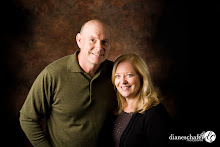"MUSIC FOR THOUGHT"....
Your Brain on Music... can music soothe, and perhaps heal?
I read an interesting article in The Miami Herald newspaper in the March 24, 2009 Ft. Lauderdale edition. The following are excerpts from the article written by Evelyn McDonnell, a special to The Miami Herald and I give her all the credit and quote her here.
"What makes music music? Do we know it when we hear it? What about people who don't hear music? Is one person's concerto another's cacaphony? Scientists, musicologists, music therapists and general readers are increasingly pondering questions like these, as the neurological study of music continues to grow and draw public interest."
"Scientists are literally listening in to the cortex listening to Beethoven. In the process, they're tackling the adages: Is music the universal language? And can it indeed be used to soothe if not the savage beast, then at least the disordered human?"
The article goes on to share the story of Tim Page who has a mild form of autism and how he found solace in music. "Page knows well the profound effects of music. As a child, music was about the only thing that made sense in a cognitively chaotic world." Page says, "It would take me into a trance, and all the worries of the world would disappear in music.... Music was almost like a translation of the world for me. I could understand things if I was listening to them musically."
"Autism is one of several conditions that can be treated with neurological music therapy." "Music gives them a vehicle to guide their attention. That ability to detect patterns can enhance learning of speech and language."
"Music therapists also use "gait training" to teach stroke patients how to walk. "The spinal cord itself responds directly to rhythm," says Shannon del'Etoile (director and associate professor of the music therapy program at the University of Miami.)
Scientists continue to conduct studies to determine how music affects the brain. "Lately, the Cleveland Clinc has played a compilation of various calssical music-Beethoven's Fifth, Mozart's last piano concerto- while they eavesdrop on neurons." (via microphones the size of a hair and record the sounds of neurons firing.) "We are looking at the effects of different types of music on different parts of the brain," says Dr. Ali Rezai, director of the Center of Neurological Restoration at the Cleveland Clinic.
I encourage you to read the entire article by Evelyn McDonnell found in the archives of The Miami Herald, as this was only a few excerpts. It is all very interesting "music for thought" as to the hidden potential and power of music.
Thanks for reading, Diane
Wednesday, March 25, 2009
Subscribe to:
Post Comments (Atom)


No comments:
Post a Comment